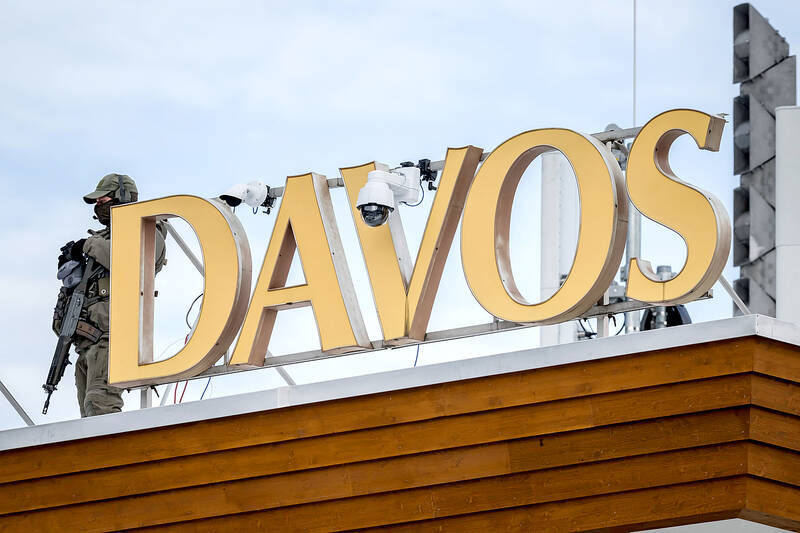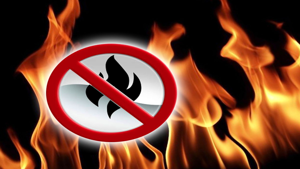The annual gathering of elites in Switzerland saw business and
world leaders addressing topics ranging from ‘economic exceptionalism’
to the apparent US-China honeymoon period
-
Reuters, DAVOS, Switzerland
Leaders and business executives left the Swiss mountain resort of Davos after a week of discussions dominated from a distance by Donald Trump’s return as US president.
Here is what we learned:
MIDDLE EAST

Photo: AFP
There was real talk of regional peace, driven by Israel’s ceasefires with Hamas and Hezbollah, with friends and foes agreed that if anyone can push Israeli Prime Minister Benjamin Netanyahu to agree to a Palestinian state it is Trump.
Iran, one of Trump’s main targets during his first term, chose Davos to tell the world it was ready to renegotiate a nuclear deal, had no ambition or intention of building a nuclear bomb and posed no threat to its neighbors or the world.
“Now it’s the time for us to move forward based on opportunity, not threats,” said Tehran’s diplomatic face, Iranian Vice-President for Strategic Affairs Javad Zarif.
UKRAINE
World leaders and businesses positioned themselves for a ceasefire in Ukraine, with Trump using his remote video address to say he wants to meet Russian President Vladimir Putin “immediately” to negotiate an end to nearly three years of war.
Ukrainian President Volodymyr Zelenskiy said one condition of any deal would be a European contingent of at least 200,000 peacekeepers, a demand Russia rejected. Meanwhile, his officials are lining up larger privatizations to attract foreign investment in the roughly US$500 billion reconstruction effort ahead.
“The recovery starts before a peace deal,” Henrik Andersen, CEO of wind turbine maker Vestas, said after closing a US$470 million wind farm deal in Ukraine.
FINANCE
For financiers touting for business, US deregulation is seen as awakening the “animal spirits” likely to prompt dealmaking across industries, including in finance with banks expected to consolidate in both the US and Europe.
While “economic exceptionalism” was one phrase doing the rounds in the corridors of Davos to describe US policy under the new Trump administration, investors and bankers expressed confidence in the underlying strength of the US economy.
Although not as visible as in other years, the crypto crowd were once again part of the Davos discussion.
The question for many was if, and how, mainstream finance may embrace crypto in light of the US move to draft new rules, with many executives signalling they need to wait and see.
AI
Two years after ChatGPT captured the world’s imagination, tech executives and investors say using AI agents to automate certain tasks, starting with the straightforward and repetitive ones, could fuel the next wave of adoption.
“Agents are a big part of how AI will impact [the] workforce … this is the year that we’ll see deployment of agents inside enterprises,” Lightspeed Venture partner Guru Chahal said.
Because the sheer scale and complexity of AI models already requires huge amounts of data, much of the talk in Davos was around the associated infrastructure and geopolitics.
The message from US business executives is that while the US is ahead of China in AI for now, the government needs tech-friendly policies and investment to maintain the edge.
“It comes back to whether or not they can do the infrastructure build-out alone,” Goldman Sachs Global Institute co-head Jared Cohen said.
ENERGY
Davos delegates felt the energy industry landscape shift around them as they digested a spate of Trump announcements.
These ranged from pledging to unleash the US energy industry to boost output, accelerating the pace of LNG projects, threatening the EU with tariffs if the bloc does not buy more gas, suspending new federal offshore wind leasing, declaring US withdrawal from the Paris Climate Agreement and asking Saudi Arabia and OPEC to bring down the cost of oil.
Washington’s withdrawal from the climate pact is not expected to meaningfully change the energy transition momentum, which is seen more in China and Europe than the US, but executives in Davos said Europe needed to speed up deregulation to incentivize investments to maintain its competitiveness.
DEI
Trump’s moves on diversity, equity and inclusion (DEI) reverberated through the corridors in Davos, where gender parity, diverse workforces and better representation of minorities are key World Economic Forum goals.
Escalating pressure on the private sector to ditch diversity programs left some searching for new words to describe workplace practices they say are essential to their businesses.
Trump has issued a series of executive orders cutting federal diversity, equity and inclusion programs, which attempt to promote opportunities for women, ethnic minorities, LGBTQ+ people and other traditionally underrepresented groups.
CHINA
Trump’s return to the White House had raised big concerns among Chinese business executives and investors about a further deterioration in bilateral relationship between the world’s two largest economies.
However, the US president unexpectedly held off on imposing tariffs on China on his first day back in power and, during his video address to Davos, he expressed a need for China’s help in ending the war in Ukraine.
This led some to speculate on the prospect of a rapprochement between Washington and Beijing, while questioning how long any honeymoon period might last.
Global investors said they maintain an interest in China-related assets, but are eager to see more concrete stimulus policies. They will be particularly attentive to clues about how Beijing plans to address the prolonged property crisis, high local government debt and weak consumer demand.
EUROPE
European Central Bank President Christine Lagarde characterized the global economic challenges facing Europe as “an existential threat.”
“If European leaders can get their act together and respond to this existential threat, there is a huge potential for Europe to respond to the call,” Lagarde said.
Some executives said Trump’s promises to roll back corporate regulation in the US had added fresh urgency to the EU’s long-running discussions on how to be more competitive.
“They’re rolling back regulations in the US fast, so it makes it more important to do (so) in Europe,” Norges Bank Investment Management CEO Nicolai Tangen said.
European Commission President Ursula von der Leyen told Davos that the bloc wants to dissuade innovative start-up firms from moving to the US to grow by creating rules that would allow them to easily operate across the 27-nation union.
Other executives said that while the EU’s rhetoric on deregulation was encouraging, they wanted to see quick action.
#Heard #Davos #learned #World #Economic #Forum









Leave a Reply